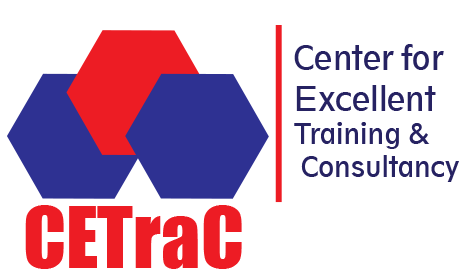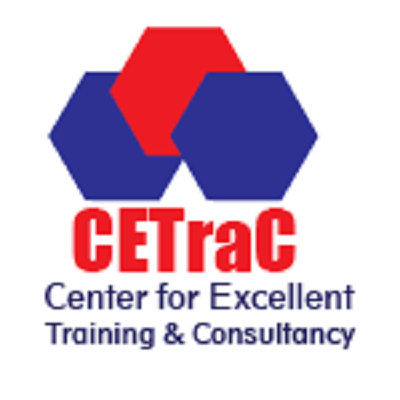Project AP-G 2030“Resilience and Proactive Management” – Sustainable Growth and New Development
Under the Medium-Term Management Program, Project AP-G 2030 (AP-G 2030), a three-year business plan for fiscal 2022 to fiscal 2024, CETraC Centers will maintain the basic strategy of business expansion through active investment. The centers will maximize the value it creates over the medium to long term by promoting structural reforms while also reinforcing its financial structure, which will facilitate its growth strategy. It will also build a resilient business foundation that will drive sustainable growth into the future.
The aim is to achieve sound, sustainable growth as set out in the Long-Term Corporate Vision, CETraC VISION 2040. Regarding the anticipated business environment over the coming years, major changes are expected due to aging populations, environmental issues, and technological innovation which create business opportunities. However, there is a risk that existing business areas will contract. For this reason, the CETraC Centers will strive to accurately grasp changes in industrial trends and to achieve sustainable growth by pursuing business model transformation.
Addressing these trends, AP-G 2030 calls for global expansion in growth business fields, strengthening competitiveness, and strengthening the management foundation as basic strategies. CETraC Centers will continue to expand quality training & capacity building programmes, human resource service support, e-learning services, research & publication, advisory consulting services and strengthen competitiveness, while increasing awareness of the balance among profit, cash flow, and asset efficiency in business operations to ensure financial soundness. We will also work on business structure reform for low-growth and low-profitability businesses to formulate a new growth track. CETraC Centers will promote the Quality Training & Capacity Building Programmes (QTCB Programmes), the Human Resource Service Support Project
(HRSS Project), and the New Total Cost Reduction Project (NTC Project) as group-wide projects to ensure execution of these strategies.
CETraC Approach
Designing the best solutions for organizations, where people truly feel
“the joy of purposefulness at work” and “the happiness of fulfilled living”
Challenges Every Business Face Today
In order for an organization to survive, they must face many challenges today from the growing pressures of economy, society and environment. It is no longer possible to manage organizations without considering global, environmental and social sustainability impacts. In order to balance business growth, a number of things are needed: a sustainable environment; adaptable people (individuals, organizations and society).
For example, sustainability is one of the key challenges. How can we create growth and increase shareholder value while still contributing to a future that is good for both the planet and its inhabitants? Another example is workplace satisfaction, which has become a significant issue recently due to the intense pressures caused by increased competition. How can we maintain a positive approach with so many changes in the workplace?
Innovation is also a key survival skill for any organization in a time of economic uncertainty. How can we continuously create new value for customers? CETraC have been offering solutions for each of these specific organizational challenges, helping our clients meet their ever-changing needs. Because of this, we believe that by enhancing the 5 capitals, our core solutions, we help our clients achieve continuous growth, improve productivity, develop talent, and create workplaces where employees truly feel “the joy of purposefulness at work” and “the happiness of fulfilled living”.
5 Capitals (Tangible & Intangible)
Financial Capital: Financial Capital is about balanced fiscal statements, maximized profits and cash, as well as sound economic rationality. Although, financial capital is very important, entities that pursue it exclusively and/or have a short-term view will not last long. Enhancing the other forms of capitals in a well-balanced manner is very important in order to achieve sustainable growth.
Technological Capital: Technological Capital is a major source of organization growth. These include the organization’s core competences, such as intellectual property (including patents), technological capabilities and accumulation of its know-how.
Intellectual Capital: Intellectual Capital is the wisdom and the knowledge of key leaders in the organization. These individuals often are the creators of intellectual properties as well as the systems that run the organization.
Social Capital: Social Capital starts with and is developed from relationships of mutual trust between people. It is characterized by strong bonds and high-quality connections.
Ideological Capital: Ideological Capital starts with the aspirations, beliefs, organizing principles and philosophy of the organization. It is built by the leaders who passionately and logically share their thoughts and the employees who take these ideals into their heart. It is a company’s the most important capital, one built on years of history that cannot be easily imitated or replaced by other organizations.
Our goal is to support our clients as they use the 5 capitals, proficiently and in a well-balanced manner, to become “self-organizing organizations”. A “self-organized organization” is often illustrated by a flock of birds. These birds intuitively form large irregularly shaped masses while in flight to streamline their flying and avoid colliding with each other. It is an organization composed by independent individuals that quickly adapt and respond to the complex environmental changes.
CETraC have been providing talent and organizational development solutions to enhance all 5 capitals. And, with more than 50 years of experience, we learned that social capital, which “brings employees together”, and ideological capital, which “shapes corporate culture”, are the capitals most important for long lasting “self-organized organizations”.
3 Foundation Principles
The 5 capitals are sourced from three foundation principles:
- Autonomy: Accountable, self-directed employees that can responsibly think, act and solve problems based on corporate philosophy
- Emergence: A culture of innovation that enables the organization to respond rapidly and appropriately to change
- Collaboration: Effective and seamless cooperation that generate positive and synergistic results.
CETraC Talent Development Plan
Nurturing talent to ensure the achievement of organizational excellence. Our core solutions focus on important aspects of your business and are designed with the specific management and organizational challenges unique to each aspect. For over the years we have been continuously refining and adapting these solutions to meet the ever-changing requirements of our clients.
- Leadership Development: To stay successful companies must continuously invest in a strong pipeline of next-generation leaders who can help them build and secure a competitive advantage today’s rapidly changing environment. The key to success lies in the manager’s capability to lead and inspire high performance in their teams. At the same time leaders must also look beyond their team and be able to recognize how organizational issues at the macro level will affect micro level decisions.
- Sales/Marketing: Client needs increasingly diversify and change over time. In order to secure revenue streams under these circumstances, it is indispensable for organizations to establish a strong sales and marketing force to drive sustainable growth. Our solutions give equal focus to all aspects of the sales cycle with an emphasis on recognizing and adapting to client communication styles.
- Performance Management: Performance Management is an approach for making sure that goals and targets are continuously being achieved in an efficient and effective manner. Vision, goals and targets need to be clearly communicated so that the people understand “what”, “how” and “when” to do things in order to achieve optimal results. Monitoring progress and regular follow-up ensures continued performance.
- Global Management: Globalization has become a requirement for many organizations to sustain growth. In this complex and dynamic environment developing talent capable of executing business strategies on a local level and managing intercultural difference becomes imperative. Our approach focuses on building the skill-set required of global managers including creating an understanding of the larger role of the organization in a global context.
- Retention Improvement: High employee turnover costs continue to be challenge for many organizations worldwide. Studies suggests that more than 10 billion dollars are lost annually due to poor retention. On the contrary, many companies that are successful in retention management benefit not only from reduced costs but also from employees reaching their fullest potential. Our solutions are designed to tackle retention issues from an organization and talent development perspectives.
Career Development: Managing individual learning and career objectives within the organization is an important factor in workforce planning, talent management and performance improvement. While career development to some extent has to focus on individual needs and wants it is important to align career planning with organizational goals by taking current and future organizational needs into account.

